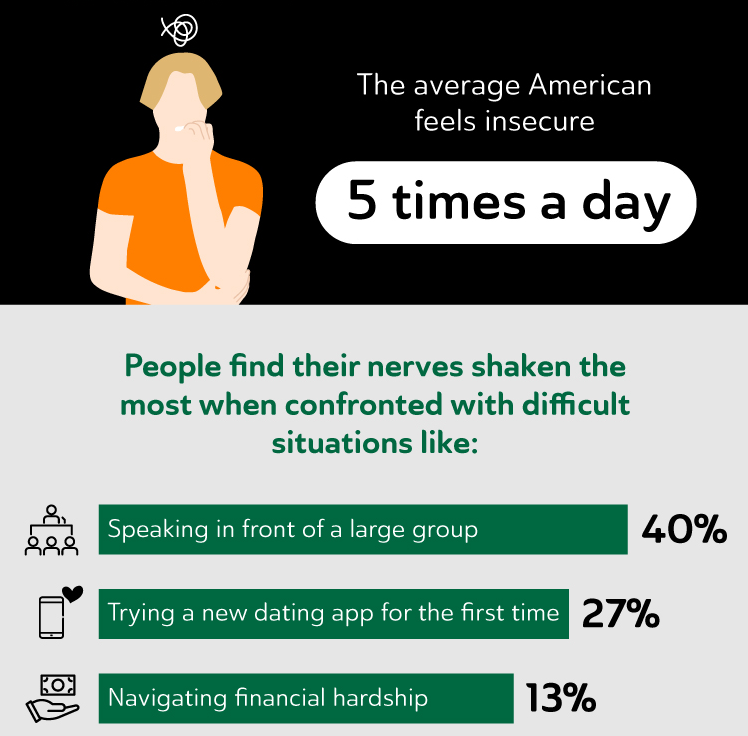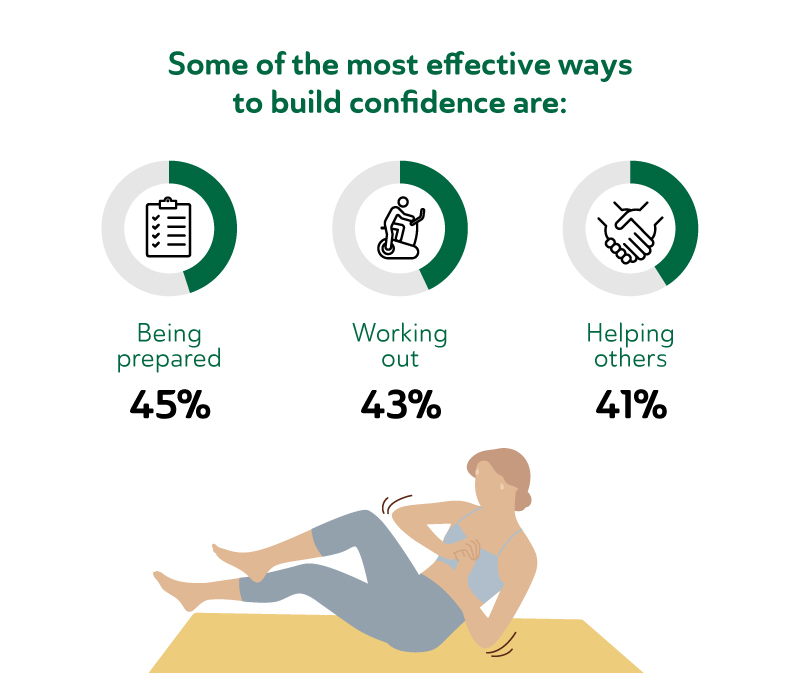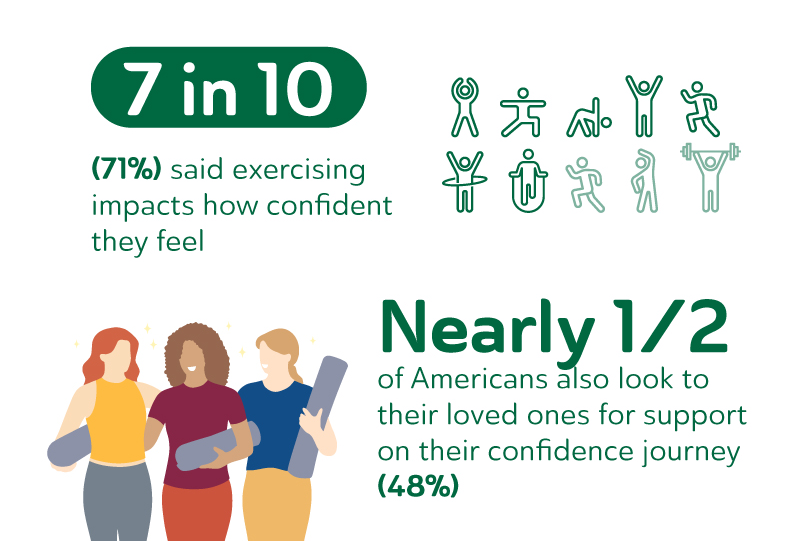The average American feels insecure five times a day, according to new research.
A survey of 2,000 people looked at their confidence levels and found that for many, confidence can be tough to come by.
Results showed that people find their nerves shaken the most when confronted with difficult situations like speaking in front of a large group (40%), not being properly prepared (34%) or starting a new job (28%).
Respondents would also be on edge when in awkward situations like trying a new dating app for the first time (27%) or if they were the last ones to walk into a meeting (22%).

Conducted by OnePoll for Curad, the survey also found that people aren’t letting life’s hurdles get them down and offered their tips and tricks for gaining more confidence.
Topping their list are adopting a positive mindset (48%), gaining support from family and friends (48%), being prepared for anything (45%), working out (43%) and helping others (41%).
Interestingly, 55% said faking confidence actually helped boost their real confidence. In fact, a third of respondents (32%) “often” or “always” feel like they have to “fake it ‘till they make it” to feel more confident.
Results also found that for three-quarters (76%) of those surveyed, confidence has a domino effect.
Respondents feel secure in other areas of their lives once they have control in one area — especially when it comes to exercise (34%), parenting (33%), and playing sports (31%). Seven in 10 (71%) also said exercising impacts how confident they feel.
Those who exercise frequently use tools that help strengthen their confidence and help enhance their overall performance such as knee/ankle braces (11%), supports (10%) or kinesiology tapes (9%).

“It’s not surprising to learn that being active and maintaining a consistent exercising routine can contribute to your physical and emotional well-being,” says 5-time Ironman World champion Craig Alexander. “There’s a sense of pride that comes with the achievement, especially if it’s a workout that pushes your boundaries. When you look back on that first try and compare that to where you are now, you can’t help but feel more confident.”

MOST CONFIDENT PROFESSIONS ACCORDING TO RESPONDENTS
Medical professionals — 41%
Servicemen/servicewomen — 38%
Businessmen/businesswomen — 33%
Politicians — 31%
Athletes — 25%
MOST ADMIRABLE TRAITS IN CONFIDENT PEOPLE ACCORDING TO RESPONDENTS
Knowledgeable — 50%
Kind — 40%
Decisive — 39%
Authoritative — 37%
Fearless — 36%
